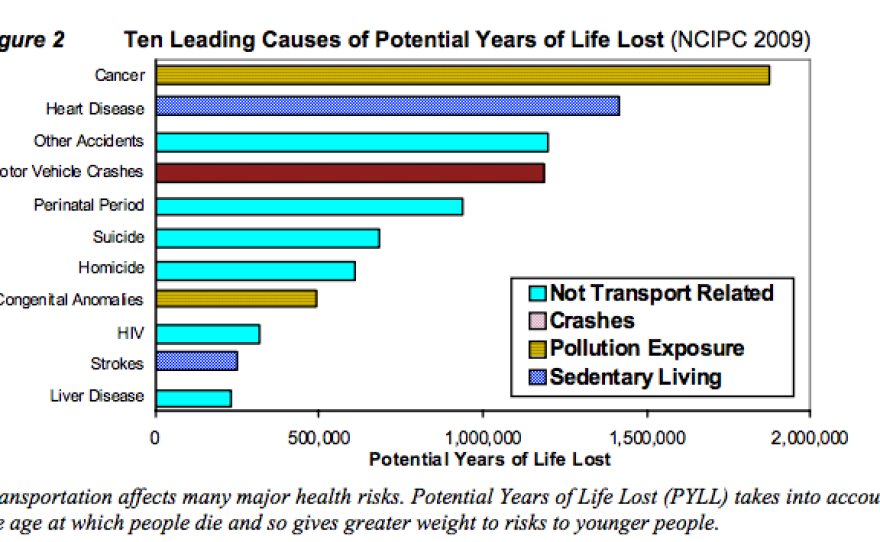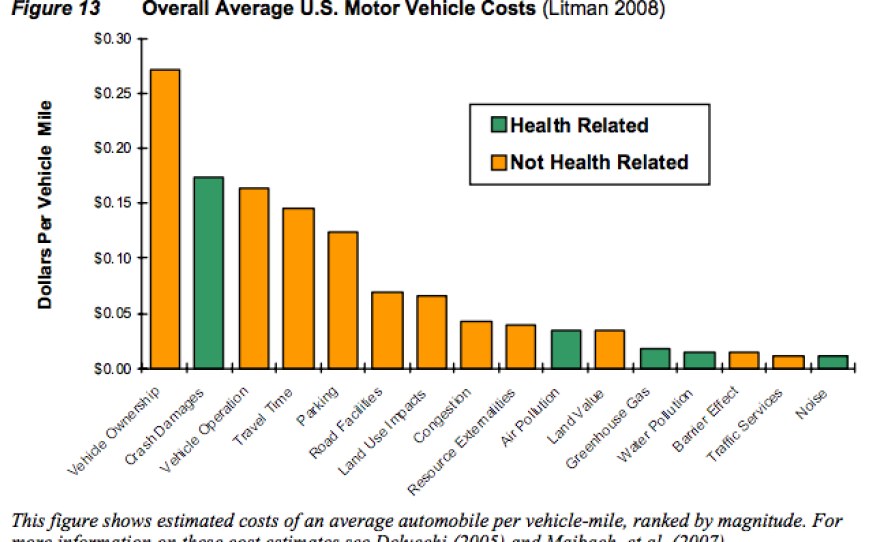One thing that emerged at Wednesday's North County Transportation Business Summit is that improving public transit is one of the most effective ways to improve public health. Our car culture is dangerous in several ways, not least because it contributes to one of the nation's fastest-growing public health problems: obesity.
Nick Macchione, director of the county’s Health and Human Services department, is a strong advocate of finding ways to get people out of their cars and moving, whether it’s walking, bicycling or catching a trolley.
“We need to invest in good healthy transit systems and get people to be more active and walk more,” he said.
Macchione pointed out to the business leaders and policy makers at the summit that poor public health is one of the largest drags on our whole economy. Currently, it eats up 18 percent of our gross domestic product. In San Diego, he said, it costs $4 billion in direct expenditures and that doesn’t even take into account lost productivity.
“So it’s all interconnected,” Macchione said, meaning that fixes for transit problems need to focus on health impacts as well.
Macchione said more than two-thirds of poor health is not related to genetics, but to environment and lifestyle. That includes diet, smoking and yes — exercise.
Jack Shu, president of the Cleveland National Forest Foundation, agreed. He strongly opposes expanding freeways as a way to solve the San Diego region’s transportation problems.

“Cars are the greatest threat or cause of death for teenagers and those into their 20s and 30s — our healthiest population. What causes their deaths is car accidents,“ Shu said. “And if you deal with indirect impacts, if you live within a quarter mile of a freeway, your child has an 85 percent higher chance of having asthma. That’s the kind of health threat that our freeways pose.”
Palomar Health, one of North County’s big employers, has picked up the gauntlet and found several ways to work on healthier ways to get people out of their cars. The health system has contributed $90,000 to the public transit agency for a bus route that ferries people from downtown Escondido right past the administrative buildings and health facilities the system owns, including the brand new hospital.
“For us it was a smart business move financially and environmentally,” Palomar Heath sustainability manager Barbara Hamilton said. “The smart business move was that we have to move people around from one campus to another, and instead of providing a shuttle, we could support the public transport.”
The bus works for employees and patients’ visitors. Parking lots cost millions of dollars to build, Hamilton pointed out, and finding alternatives saved big money. The health system also subsidizes employees' bus passes to the tune of more than $100 a month, encourages van pooling and heavily promotes biking to work.
San Diego Supervisor Dave Roberts, who represents parts of North County, convened the summit after hearing complaints at an earlier meeting of the region’s business leaders.
“People complained that basically the car was the primary way to get around North County,“ Roberts said. “You have one static Coaster route, one static Sprinter route and some bus services. Supervisor Bill Horn and I have been talking about how to do more development along the Sprinter corridor.”
Roberts said the San Diego North Economic Development Council and the North San Diego Chamber of Commerce are considering how improving transit options could improve both the region’s economic health as well as people's health in general.
“Many policy makers are waking up to the fact that there is this hidden cost of how we’re operating,” Roberts said. “How can we do this smartly, looking at the health options as well as the transit options? “
But Jack Shu is skeptical. For example, Caltrans' environmental-impact report on plans to expand northbound Interstate 5 with four more express lanes does not address several important issues, he said.
“One of them is that they did not do the health-impact assessment,” he said.
The Cleveland National Forest Foundation filed suit against Caltrans last week saying its EIR does not comply with state environmental law.

Shu found the discussion at the summit only too familiar.
“A lot of the information is really not new; it’s what we’ve heard over and over,” he said. “We advocate for, and we show reasons to change. However, our region has not changed. We still spend the same amount of money expanding freeways when we shouldn’t be. “
But several people at the summit called for it to be held annually, so North County policy makers and business leaders can keep track of whether their discussion is making a difference.
"Otherwise," said Nick Macchionne, of the forum, “So what?”






